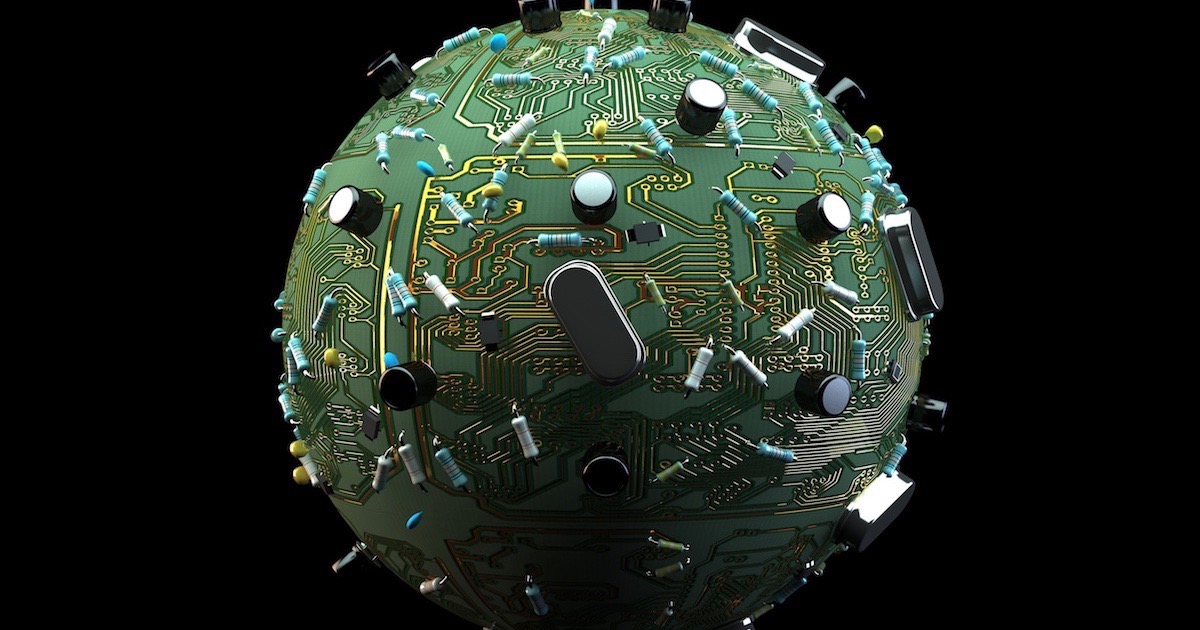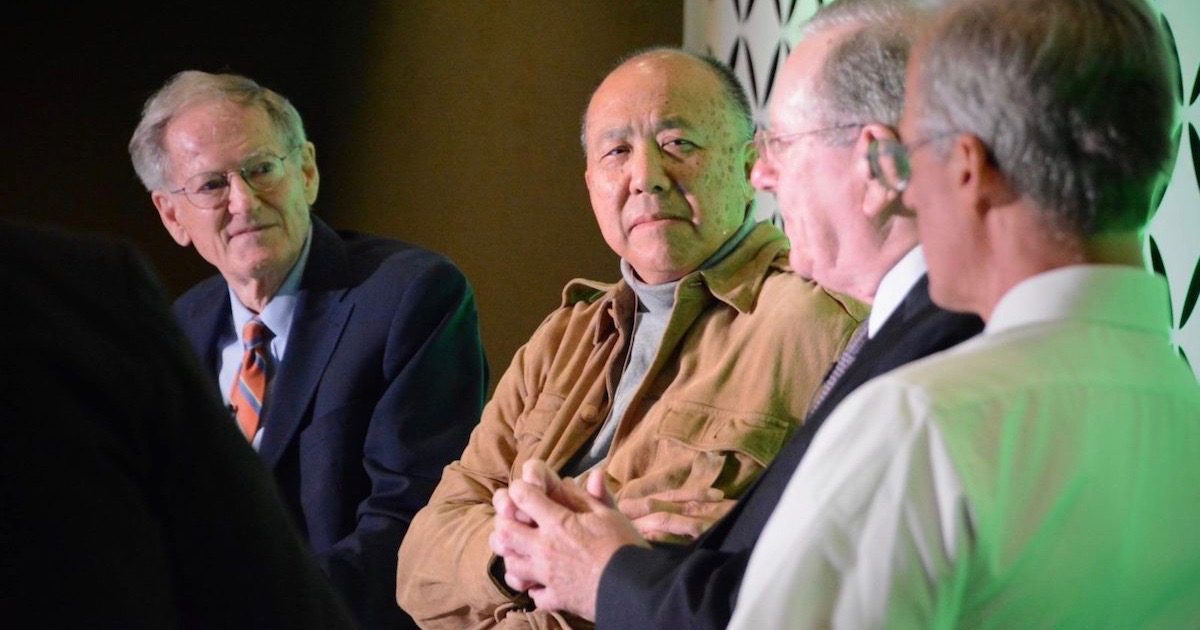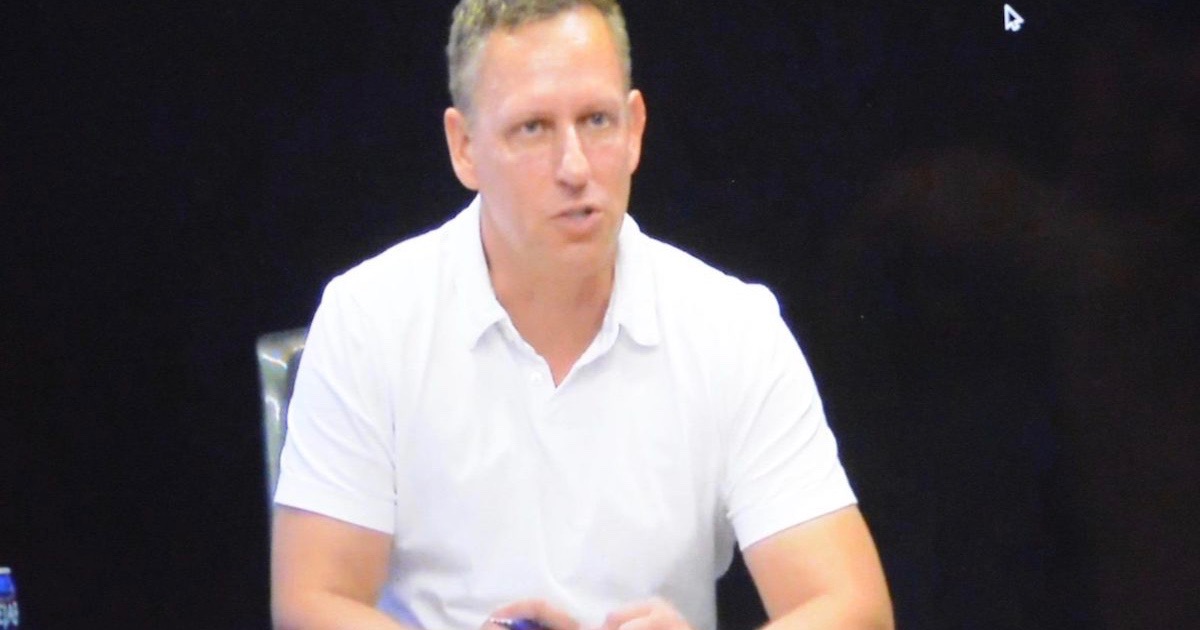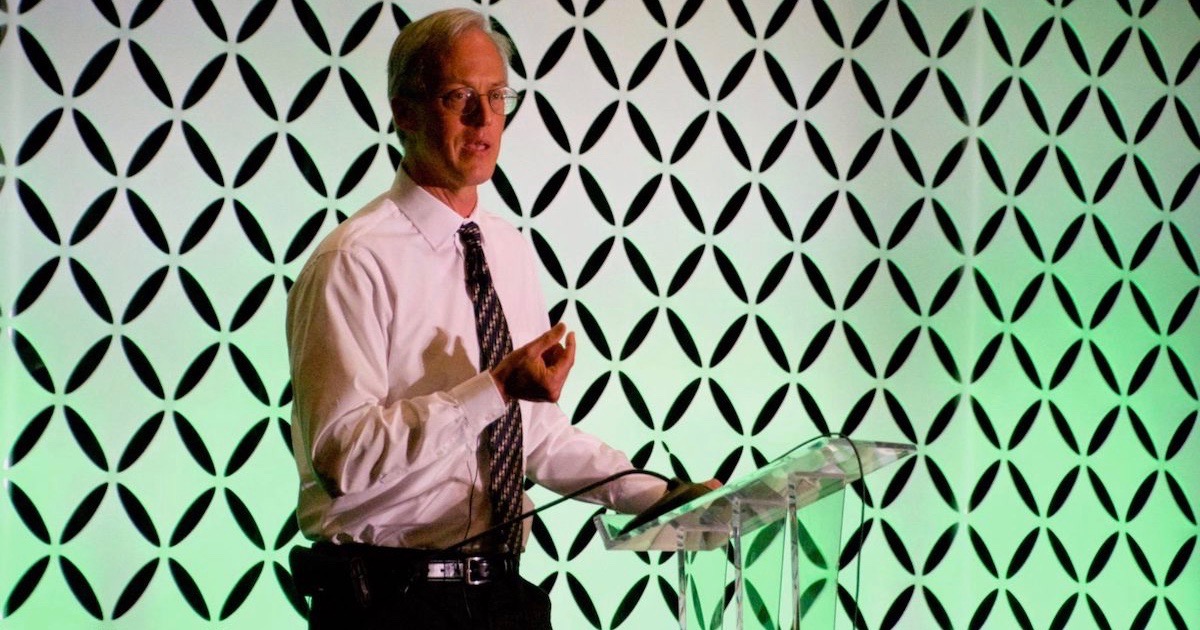 Culture & Ethics
Culture & Ethics
COSM Conference: A Bonfire for Tech Vanities

Over at Mind Matters, our friend Denyse O’Leary of the Bradley Center is covering the three-day COSM National Technology Conference, sponsored by Discovery Institute and currently ongoing in Bellevue, Washington. The agenda is rich and stimulating, and the participants are stellar — including Peter Thiel, George Gilder, William Dembski, Steve Forbes, Ray Kurzweil, Craig Mundie, Ed Moy, and more.
See:
- “Chair of Forbes Media Says Money Is About Trust”
- “Tech Entrepreneur Peter Thiel Says Silicon Valley Is Losing Its Touch”
- “Former Microsoft Head of Research: Machines Will Soon Know Better than Your Doctor”

George Gilder, Ed Moy, Steve Forbes, William Dembski (l to r) at COSM.
Threads in the conversation have been very diverse, and many of the sessions have highlighted the new opportunities being fueled by the tech economy, especially from applications of artificial intelligence (AI). At the same time, there has been a reality check about the challenges and limits of the tech economy.
Peter Thiel described the parched imagination increasingly evident in Silicon Valley:
It’s become a lot less charismatic in the last five years. The big tech companies are as self-hating as the big banks were in 2009. There is absolutely no narrative of the future left.

Peter Thiel, tech entrepreneur and co-founder of PayPal.
Regarding the often-told story of future AI dominance of humans, Thiel “dismissed the idea that machines will take over and put everyone out of a job.” He also assailed the “Atheist Church,” as he calls the universities, calling for outsiders to push for a reformation that the academic priesthood will never undertake on its own.
Steve Forbes, the Forbes Media chairman, weighed the idea of a Facebook currency, the Libra, and noted the irony that while money is about trust, trust in Facebook is just what the public lacks.
As panelist Ed Moy, former director of the U.S. Mint and fan of cryptocurrencies in principle, noted, “The problem with the Libra is trust in Facebook. We don’t trust them with our information but we would trust them with our currency?”

William Dembski, mathematician and philosopher.
Speakers have disagreed about whether AI will ever have the capacity for creativity, wisdom, and judgment. Craig Mundie, formerly Microsoft’s Chief Research and Strategy Officer, and Google’s Ray Kurzweil, both gave rosy assessments of the ability of AI to surpass human capabilities. Other speakers emphasized human uniqueness and how dependent AI actually is on human input and guidance.
As noted here already, the conference is not about intelligent design, nor is it sponsored by the Center for Science & Culture. But one of the main points of interest about ID has to do with the human exceptionalism that materialists and the Atheist Church are compelled to deny. After all, a blind material process would be unlikely to cast up a unique creature, as we understand man to be, from its purposeless churning.
Along with its other lessons, the COSM conference underlines our appreciation of human uniqueness. For more, follow Denyse’s reporting at Mind Matters.
